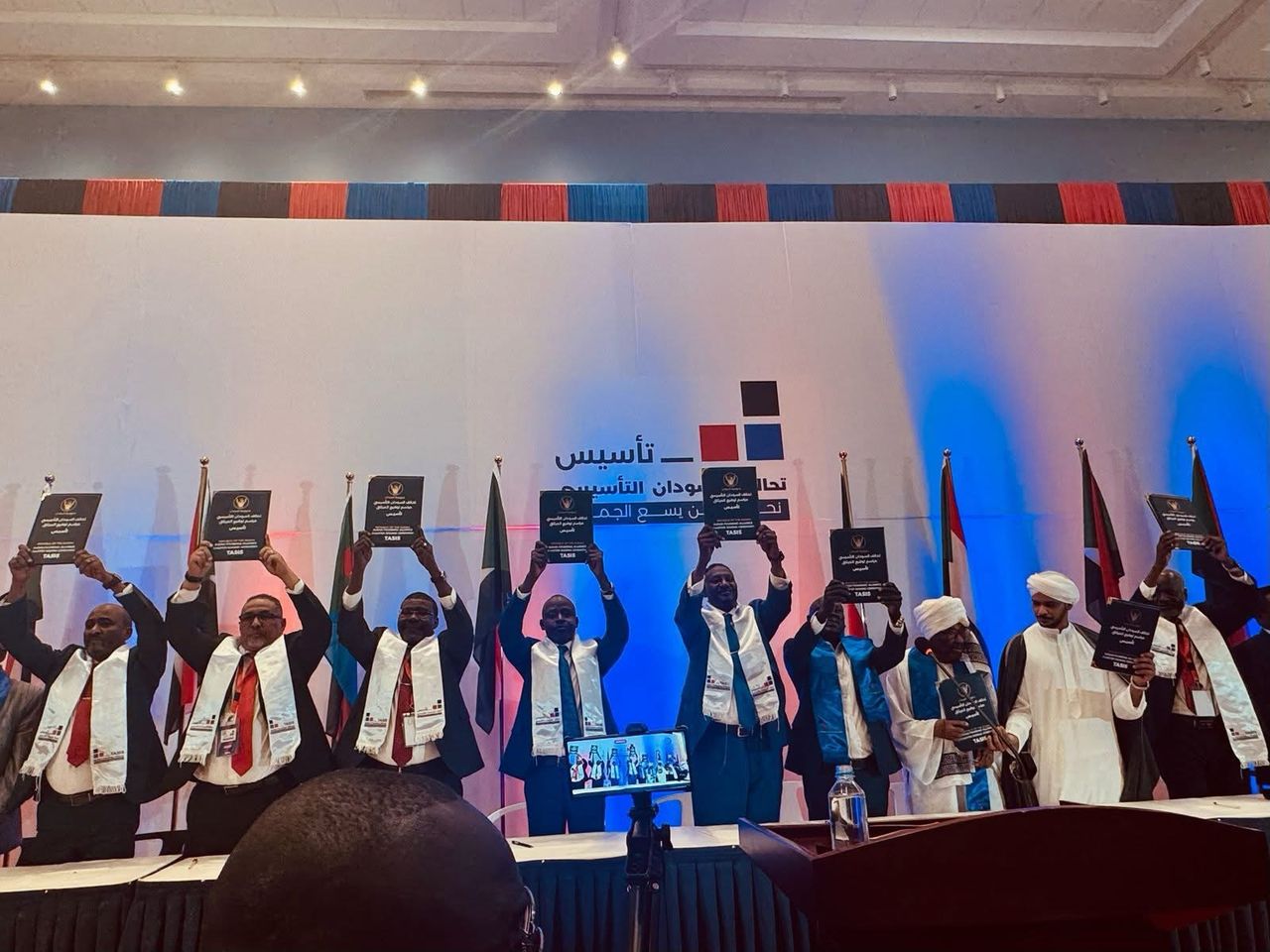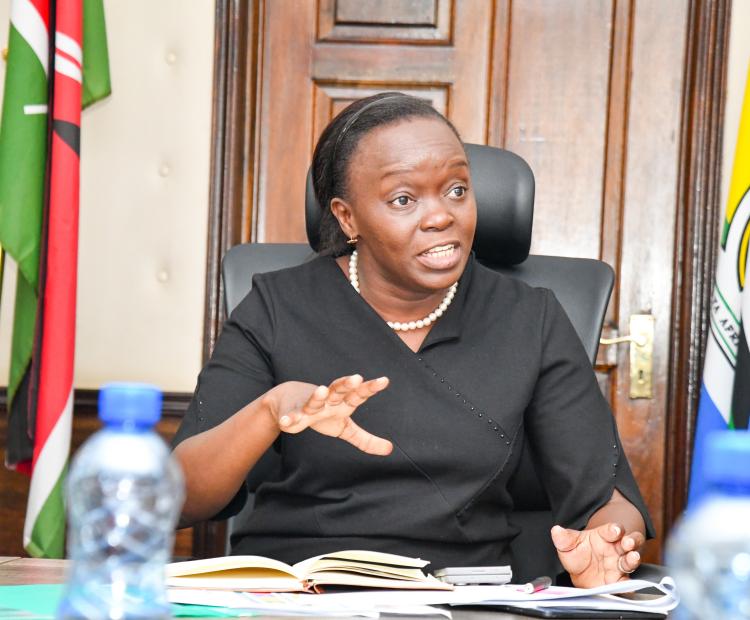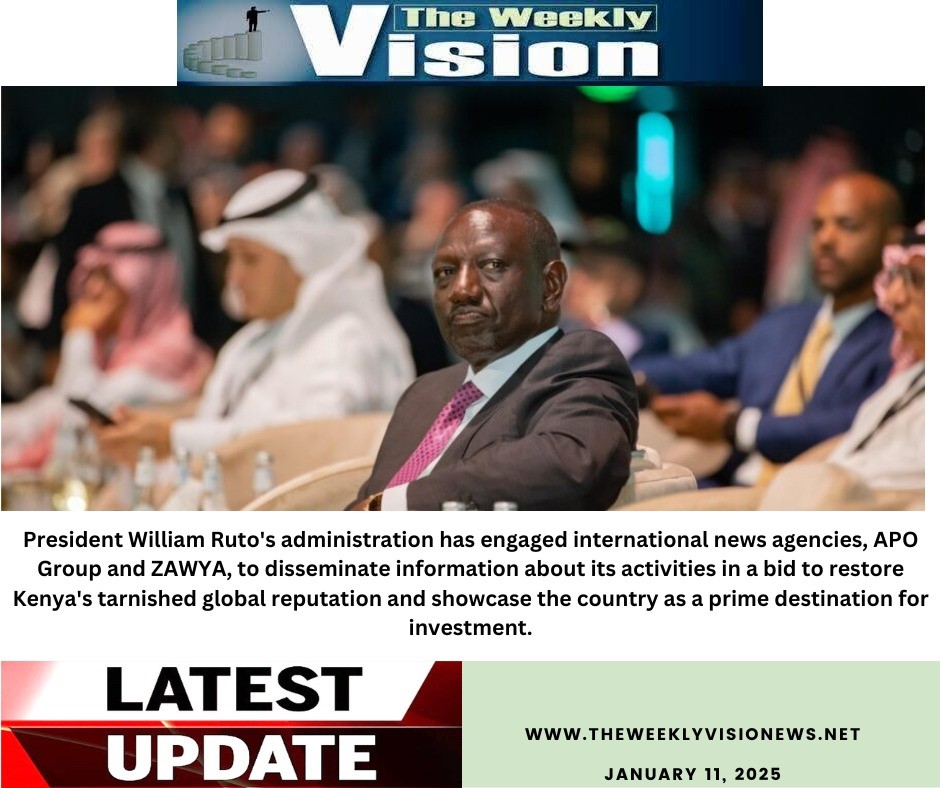A faction of the SPLM-N, led by Abdelaziz al-Hilu—who controls parts of Southern Kordofan and Blue Nile states—also signed the agreement. However, sources indicated that RSF commander Mohammed Hamdan Daglo was absent from the ceremony, while his brother, Abdel Rahim Daglo, attended alongside other leaders
Sudan’s paramilitary Rapid Support Forces (RSF) and its allies have signed a charter to establish a parallel government in the war-torn North African nation. The signatories, including the RSF and a faction of the Sudan People’s Liberation Movement-North (SPLM-N), stated that the charter lays the foundation for a ‘government of peace and unity’.
Unlike last week, when the RSF held a public rally at the Kenya International Convention Centre under full media scrutiny—drawing criticism from Kenyans and the international community—the signing ceremony on Saturday was conducted in the evening without fanfare or press invitations.
The signing of the charter follows nearly two years of devastating conflict with the regular army, which has displaced more than 12 million people, leaving behind hunger, starvation, and other humanitarian crises.
Key stakeholders convened in Nairobi for four days, culminating in the signing of the agreement, which is expected to steer Sudan towards peace and unity. The proposed government aims to end the war, combat terrorism, and strengthen diplomatic ties with neighbouring countries.
A faction of the SPLM-N, led by Abdelaziz al-Hilu—who controls parts of Southern Kordofan and Blue Nile states—also signed the agreement. However, sources indicated that RSF commander Mohammed Hamdan Daglo was absent from the ceremony, while his brother, Abdel Rahim Daglo, attended alongside other leaders.
The charter calls for a ‘secular, democratic, and decentralised state founded on freedom, equality, and justice, without favouritism towards any cultural, ethnic, religious, or regional identity’. It also outlines plans for a ‘new, unified, professional national army with a military doctrine that reflects Sudan’s diversity and plurality’.
According to the charter, the proposed peace and unity government seeks to end the war, ensure unhindered humanitarian aid, and integrate armed groups into a single national force serving the entire country.
The war between the army and the RSF, sparked by disputes over the integration of the paramilitary force into the regular military, has resulted in tens of thousands of deaths. The conflict has effectively divided Sudan, with the army controlling the north and east, while the RSF holds nearly all of the western region of Darfur and large sections of the south.
During the signing ceremony, more than 20 political parties, 10 civil organisations, and five military groups—led by the RSF—alongside other lobby groups, appended their signatures to the charter.
Kenya’s hosting of the event has drawn sharp criticism from Sudan’s army-aligned administration, which recalled its envoy from Nairobi on Thursday in protest.
Despite this, the group commended Kenyan President William Ruto for maintaining a non-partisan stance, despite allegations that the summit aimed to form a parallel government in Kenya.
“It has served as a platform for more than 4,000 stakeholders to engage on the root causes of Sudan’s problems and find solutions,” the group stated.





